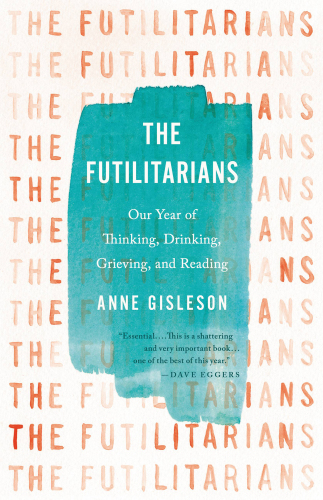
The Futilitarians
Our Year of Thinking, Drinking, Grieving, and Reading
کتاب های مرتبط
- اطلاعات
- نقد و بررسی
- دیدگاه کاربران
نقد و بررسی

May 1, 2017
Giselson’s memoir is a compassionate journey through personal grief, as well as a smart compendium of literature. After the suicides of her twin sisters (Rachel and Rebecca) and the destruction Hurricane Katrina wreaks in her hometown of New Orleans, Giselson and her husband Brad bring friends together in what they called the Existential Crisis Reading Group, or ECRG. Giselson, who’s written for the Atlantic and the Oxford American, documents a year in which she and the ECRG explore the meaning of life as they read, drink, and share ideas. What ensues is a dynamic examination of human suffering and human joy. They discuss an all-star lineup of literature—including the works of Kingsley Amis, Epicurus, Clarice Lispector, Shel Silverstein, and Leo Tolstoy, to name a few. Giselson nicely evokes the Catholic teachings she learned from her parents; most moving, though, is her hard look at her twin sisters’ lives: both were fraught with mental illness and addiction, traits shared by their father, who was a death-row lawyer in Louisiana. Her narrative is a wonderful look at friendship and grief, as well as an enlightening personal literary journey. Agent: Emma Parry, Janklow & Nesbit Assoc.

May 15, 2017
An engrossing memoir chronicles a search for spiritual healing.In 2011, happily married and the mother of two children, journalist Gisleson (New Orleans Center for Creative Arts; co-editor: How to Rebuild a City: Field Guide from a Work in Progress, 2010) was beset by a "persistent, daily, unsettling dread," a feeling, "vaguely, that everything was wrong." When a close friend asked her to "sit down and talk through some philosophical issues one-on-one," she suggested forming a group instead: other friends, too, seemed in flux and on edge, and the author hoped that a monthly meeting, discussing relevant readings, would help. They called themselves the Existentialist Crisis Reading Group, nicknamed the Futilitarians. Chosen by the dozen or so members, readings ranged from Ecclesiastes to James Baldwin, King Lear to Fight Club and included philosophy, fiction, essays, poetry, biography, memoir, and even a movie. (The author appends the group's reading list.) As Gisleson conveys her responses to these disparate readings, she reveals the events of her life that generated her "messy thoughts and feelings." When she was in her late 20s, her youngest sister, Rebecca, committed suicide; a year and a half later, Rebecca's identical twin, Rachel, also killed herself; and, more recently, her father succumbed to leukemia. Added to these was the devastation to her native New Orleans caused by Hurricane Katrina. Rebecca's death left her shattered. "Unmarried, insecure, and chronically confused," Gisleson writes, "I became paralyzed in my personal life, unable to make good decisions to move things forward." Rachel's death compounded those feelings, preoccupying the author for years. "I harbor a terrible, guilty suspicion," she writes, "that the deaths of my sisters, their disappearance from the family structure," allowed the remaining siblings "to do things we might not otherwise have ventured." Rebecca and Rachel, their life choices, and mental illness are central to Gisleson's story, as is her father, an opinionated, hard-drinking lawyer whose pro bono work for death row inmates the author seeks to understand. A graceful narrative that seamlessly interweaves philosophical reflections and intimate revelations.
COPYRIGHT(2017) Kirkus Reviews, ALL RIGHTS RESERVED.

























دیدگاه کاربران